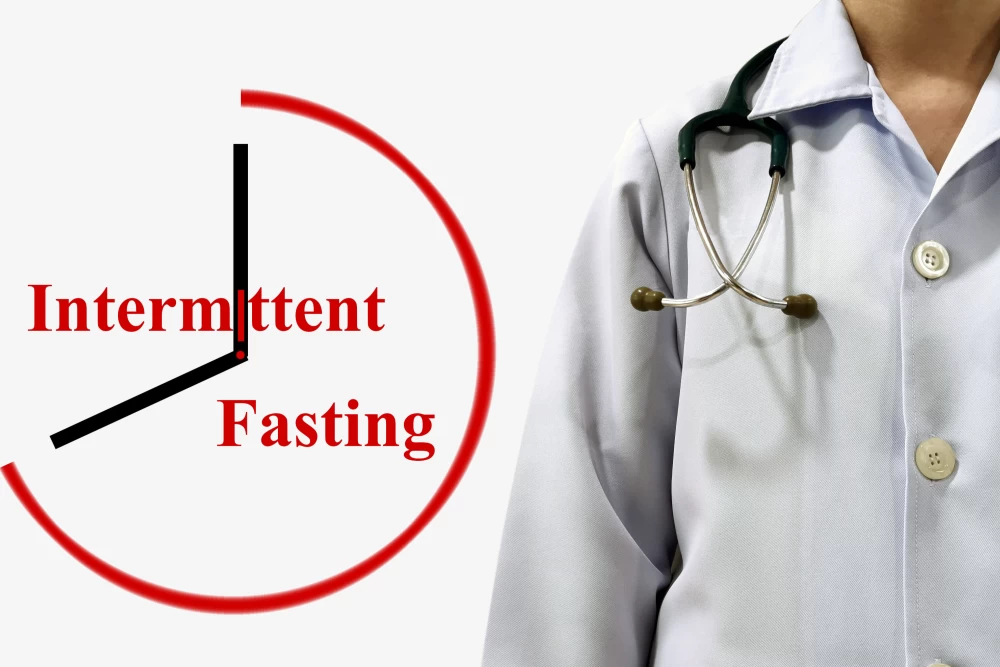
- 25th March 2023
Table of Contents
What is Fatty Liver Disease?
Fatty liver disease is a medical condition that occurs when excess fat builds up in the liver. This can lead to inflammation and damage to the liver, potentially causing long-term health problems. Non-alcoholic fatty liver disease (NAFLD) is the most common type of fatty liver disease and affects millions of people worldwide. It can be caused by factors such as obesity, insulin resistance, high cholesterol levels, and type 2 diabetes. Stress may also play a role in the development and progression of fatty liver disease. Stress triggers the production of cortisol, a hormone that can cause inflammation throughout the body, including in the liver. Chronic stress can lead to sustained cortisol production and chronic inflammation, which may contribute to NAFLD development or worsening symptoms. Managing stress through lifestyle changes such as regular exercise, healthy eating habits, meditation or mindfulness practices has been shown to improve overall health outcomes for those with or at risk for developing NAFLD. In combination with other recommended treatments for fatty liver disease like weight loss and medication management plans set forth by medical professionals , managing stress is an essential part of preventing or treating this potentially serious condition.
Cause: Stress and its Effects
Stress is a common factor that affects our daily lives. The body’s natural response to stress is the release of cortisol, which prepares us for the “fight or flight” response. However, long-term exposure to cortisol can lead to various health problems, including fatty liver disease. Stress causes inflammation in the liver, leading to an accumulation of fat in this organ. Managing stress is important in preventing and managing fatty liver disease. There are numerous ways to manage stress and improve overall mental health. One effective way is through exercise as it releases endorphins that help fight off anxiety and depression caused by chronic stress. Other techniques include deep breathing exercises, meditation, mindfulness practices, and yoga. It's essential for individuals with fatty liver disease to take steps in managing their stress levels as it can lead to further complications if left unaddressed. Seeking professional help from mental health specialists may also be necessary for those who experience high levels of stress on a daily basis.
Symptoms of FLD
Fatty liver disease (FLD) is a condition that occurs when fat accumulates in the liver. It's typically not associated with any noticeable symptoms, especially during the early stages of the disease. However, as FLD progresses, individuals may start to experience several symptoms such as fatigue, weakness, weight loss or gain and abdominal discomfort. They may also notice yellowing of their skin and eyes due to jaundice. In addition to these physical symptoms, FLD is often linked with increased stress levels. Stress can induce inflammation in the body and lead to insulin resistance which can exacerbate FLD. When under stress for prolonged periods of time, individuals may begin experiencing anxiety and depression as well as mood swings. While there isn't a cure for fatty liver disease yet , managing stress can help reduce inflammation in the body and prevent further damage from occurring in the liver. Engaging in relaxation techniques like meditation or yoga can be helpful in reducing stress levels while regular exercise has been shown to improve overall health by enhancing insulin sensitivity and reducing inflammation thereby preventing progression of nonalcoholic fatty liver disease (NAFLD).
Treatment Options
Fatty liver disease is a condition that occurs when excess fat accumulates in the liver. It is strongly associated with lifestyle factors such as obesity, poor diet, and lack of physical activity. Stress is also known to play a role in the development and progression of fatty liver disease. The stress hormone cortisol can promote the accumulation of fat in the liver, leading to inflammation and damage. Fortunately, there are several ways to manage stress and improve fatty liver disease. One approach is through exercise, which has been shown to reduce cortisol levels and decrease fat accumulation in the liver. Another option is cognitive-behavioural therapy (CBT), a type of talk therapy that helps individuals identify and change negative thought patterns that contribute to stress. Additionally, relaxation techniques such as deep breathing exercises, meditation, or yoga can be effective for managing stress levels. These techniques have been found to decrease cortisol levels in the body while promoting feelings of calmness and well-being. By taking steps to manage stress through these treatment options, individuals with fatty liver disease may be able to improve their overall health outcomes.

Managing Stress
Fatty liver disease is a condition characterised by the accumulation of fat in the liver. While this condition can be asymptomatic, it can progress to serious liver damage and even liver failure in some cases. Stress has been identified as one of the factors that contribute to fatty liver disease. When we are stressed, our body produces hormones like cortisol which increases inflammation and potentially worsen fatty liver. Managing stress is crucial for preventing or managing fatty liver disease. Some effective ways of managing stress include exercise, meditation, yoga and deep breathing exercises. Exercise is a great way to reduce stress levels as it releases endorphins which increase feelings of happiness and well-being. Meditation and yoga have also been shown to decrease stress levels by promoting relaxation and reducing anxiety. In addition, getting sufficient sleep is one of the best ways to manage stress. Sleep deprivation increases cortisol levels in the body causing an increase in inflammation which can lead to complications related to fatty liver disease.
Nutrition & Exercise
Stress is one of the leading causes of fatty liver disease as it triggers the release of stress hormones such as cortisol, which increases insulin resistance and inflammation in the liver. This can lead to a buildup of fat in the liver and eventually cause permanent damage. To manage stress, individuals with fatty liver disease should incorporate exercise into their daily routine to help reduce stress levels. Exercise helps release endorphins, which are natural mood boosters that promote feelings of well-being. In addition to exercise, individuals with fatty liver disease should also focus on their nutrition. A diet high in fruits and vegetables and low in processed foods can help reduce inflammation in the liver and improve overall health. It's important for individuals with fatty liver disease to work with a registered dietitian or healthcare provider to develop a personalised nutrition plan that meets their individual needs. Overall, managing stress through exercise and proper nutrition is crucial for individuals with fatty liver disease. By incorporating these lifestyle changes into their daily routine, they can improve their overall health and reduce the risk of developing complications from this condition.
Coping Strategies
One of the best coping strategies for managing stress is regular exercise. Exercise has been shown to reduce stress hormones like cortisol and increase endorphins, which are natural mood-boosters. Incorporating just 30 minutes of physical activity into your day can help improve your overall well-being and reduce the impact of stress on your body, including fatty liver disease. Another helpful coping strategy is practicing mindfulness and relaxation techniques. Meditation, deep breathing exercises, and yoga have all been shown to decrease anxiety and depression symptoms while increasing feelings of calmness and relaxation. These practices can also help regulate blood pressure, heart rate, and other physiological responses to stress that can contribute to fatty liver disease. Finally, seeking social support from friends or family members can also be an effective way to cope with stress related to fatty liver disease. Talking about your feelings with someone you trust can help reduce feelings of isolation or loneliness while providing a sense of connection that may improve overall mental health outcomes. Building a strong support network can also provide practical assistance when needed or simply offer a listening ear during challenging times.
Conclusion
In conclusion, managing stress is vital for those with fatty liver disease. Stress can exacerbate the condition and lead to further complications, so taking steps to reduce stress levels is necessary for keeping the disease under control. Simple lifestyle changes such as regular exercise, meditation or deep breathing exercises, and getting enough sleep can go a long way in reducing stress levels. Additionally, seeking professional help through counseling or therapy may be beneficial in managing stress. It's important to communicate your concerns with your healthcare provider to develop an appropriate management plan that works for you. With proper stress management techniques in place, it's possible to improve liver function and quality of life while living with fatty liver disease. It's worth noting that while stress management is crucial in managing fatty liver disease, it shouldn't be the only focus of treatment. Other lifestyle changes such as maintaining a healthy diet and avoiding alcohol are also important components of managing this condition. By incorporating these strategies into one's daily routine alongside good stress-management habits, individuals with fatty liver disease can take control of their health and improve their overall well-being.














